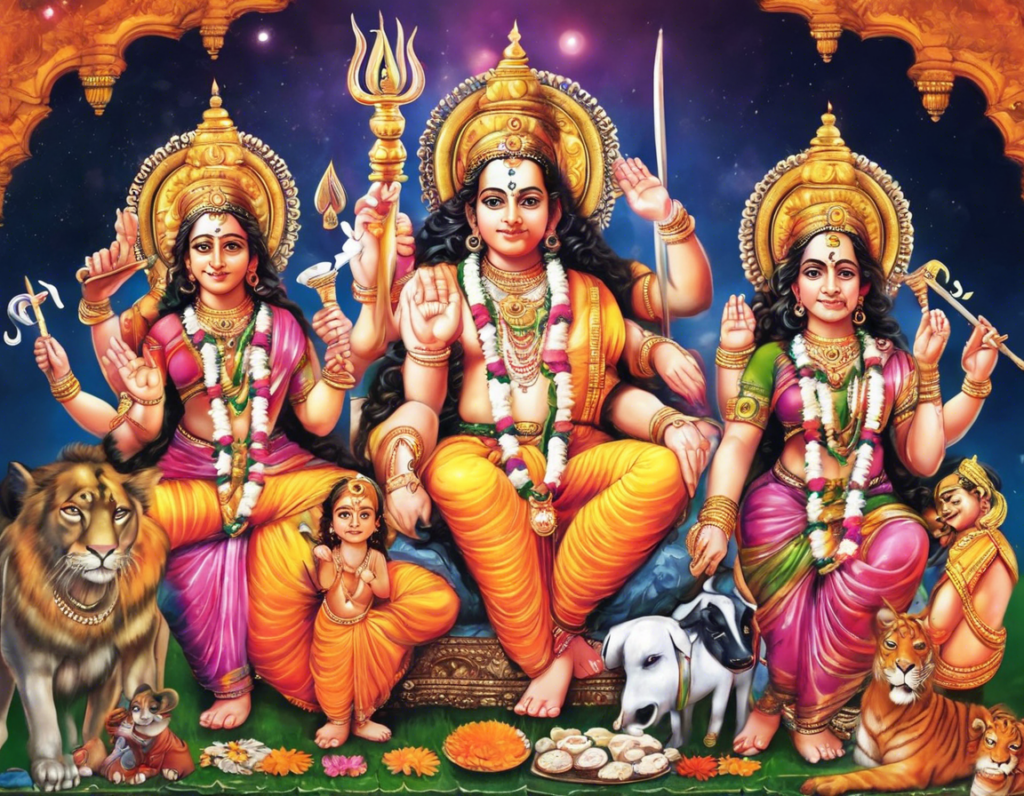Shivjanmotsav is a festival that holds great cultural and religious significance for followers of Lord Shiva in Maharashtra, India. The festival marks the birth anniversary of Lord Shiva and is celebrated with much fervor and enthusiasm by devotees across the state. In this blog post, we will delve into the various rituals, traditions, and customs associated with Shivjanmotsav in 2024, with a special focus on how it is celebrated in the Marathi community.
History and Significance of Shivjanmotsav
Shivjanmotsav, also known as Maha Shivaratri, is one of the most important festivals in the Hindu calendar dedicated to Lord Shiva. It falls on the 14th day of the dark fortnight in the month of Phalguna. According to Hindu mythology, this is the day when Lord Shiva performed the Tandava, the cosmic dance of destruction and creation. Devotees observe fasts, offer prayers, and participate in various rituals to seek blessings from the lord.
Rituals and Traditions
1. Fasting: Devotees observe a strict fast on Shivjanmotsav, consuming only fruits, milk, and water. Some devotees even observe a nirjala fast, abstaining from food and water for the entire day and night.
2. Night Vigil: Many devotees stay awake all night, offering prayers and chanting hymns in praise of Lord Shiva. This night vigil is known as Jagran and is believed to bring peace and prosperity.
3. Abhishek: The ceremonial bathing of the Shivlinga with milk, honey, ghee, yogurt, and water is an essential part of the celebrations. It is believed to cleanse the soul and bring good fortune.
4. Offerings: Devotees offer bael leaves, flowers, fruits, and other traditional offerings to Lord Shiva as a symbol of devotion and gratitude.
Celebrating Shivjanmotsav in Marathi Style
In Maharashtra, Shivjanmotsav is celebrated with unique customs and rituals that reflect the rich cultural heritage of the Marathi community. Here are some key traditions followed during the festival:
1. Panchamrut Abhishek: In Marathi households and temples, the Shivlinga is bathed with Panchamrut, a mixture of five sacred ingredients – milk, yogurt, ghee, honey, and sugar. This ritual is believed to bring purity and prosperity.
2. Mahaprasad: Special dishes like puran poli, sabudana khichdi, and kheer are prepared as offerings to Lord Shiva. Devotees partake in this mahaprasad as a way to seek blessings and express gratitude.
3. Dhols and Tasha: In rural Maharashtra, traditional musical instruments like dhols and tashas are played during the processions taken out in honor of Lord Shiva. The rhythmic beats create a festive atmosphere and enhance the celebratory spirit.
4. Alakhe: Women adorn themselves with traditional Marathi jewelry, apply henna on their hands, and dress in vibrant nauvari sarees to mark the occasion. This adds to the beauty and charm of the festivities.
FAQ Section:
1. What is the significance of fasting on Shivjanmotsav?
– Fasting is believed to purify the body and mind, allowing devotees to focus on prayers and seek blessings from Lord Shiva.
2. How is Shivjanmotsav different from Maha Shivaratri?
– Shivjanmotsav is the Marathi name for Maha Shivaratri, both festivals symbolize the celebration of Lord Shiva’s birth anniversary.
3. Why is Panchamrut Abhishek performed during Shivjanmotsav?
– Panchamrut Abhishek is a sacred offering that symbolizes purity and abundance. It is believed to please Lord Shiva and bring blessings to the devotees.
4. Are there any special dishes prepared during Shivjanmotsav in Maharashtra?
– Yes, dishes like puran poli, sabudana khichdi, and kheer are commonly prepared as offerings and shared among devotees during the festival.
5. How do women in Maharashtra celebrate Shivjanmotsav?
– Women dress in traditional nauvari sarees, adorn themselves with jewelry, and apply mehendi as part of the festive celebrations.
In conclusion, Shivjanmotsav is a time of devotion, celebration, and spiritual rejuvenation for the Marathi community in Maharashtra. The rich tapestry of rituals, traditions, and customs associated with this festival serves to deepen the bond between devotees and Lord Shiva, fostering a sense of unity and harmony. Let us uphold these traditions with reverence and joy as we celebrate Shivjanmotsav in 2024.
